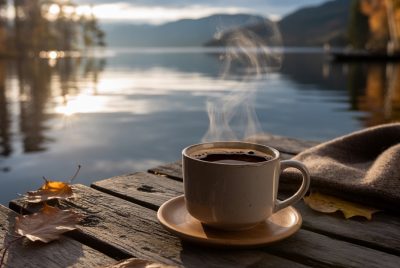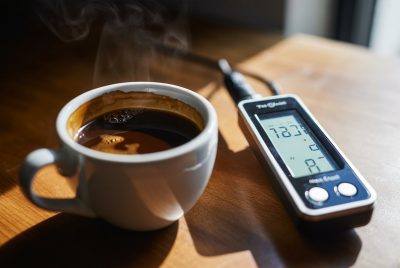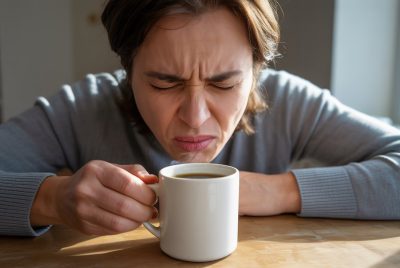How Much Coffee Grounds for 12 Cups
*We may earn a commission for purchases made using our links. Please see our disclosure to learn more.
Ah, the allure of a fresh cup of coffee! For many, it’s the morning ritual that jumpstarts the day or the soothing companion during a late-night work session. But there’s an art to brewing the perfect cup, and it starts with getting the coffee-to-water ratio just right. If you’ve ever wondered how much coffee grounds you need for 12 cups, you’re not alone. Let’s embark on a coffee journey, exploring the science, the methods, and the secrets to crafting a brew that’s tailored to your taste buds.
The Essence of the Coffee-to-Water Ratio
Understanding the Coffee-to-Water Ratio
The coffee-to-water ratio is the pivotal factor in the art of coffee brewing, serving as the bedrock of every method. In its essence, it’s an uncomplicated notion: the quantity of coffee grounds employed in proportion to the water’s volume holds the key to shaping the strength and flavor of your brew.
Just as a skilled chef artfully harmonizes flavors in a gourmet creation, you, too, must embark on a journey to uncover the perfect equilibrium for your coffee elixir. It’s a symphony of taste, where precision in your coffee-to-water ratio is the conductor guiding your palate through a delightful and aromatic experience, ensuring every sip is a symphony of satisfaction.
The Standard Ratio: A Reliable Starting Point
Establishing a strong foundation for your coffee brewing adventure begins with the standard coffee-to-water ratio. Typically, for every 6 ounces (approximately 177 milliliters) of water, experts recommend using 1 to 2 tablespoons of finely ground coffee beans. This guideline provides a dependable starting point for your coffee-making journey. However, it’s essential to realize that this ratio is not set in stone; it’s merely a launching pad.
Achieving your ultimate coffee nirvana involves delving deeper into the art of coffee preparation, understanding the nuances of different beans, experimenting with grind sizes, and customizing your brewing method to suit your palate. In the realm of coffee, the possibilities for personalization are endless, promising a flavorful and satisfying cup every time.
Factors Influencing the Ratio
To achieve coffee perfection, take into account a few influential factors:
- Personal Taste: Your taste preferences should guide your coffee-to-water ratio. Some prefer a robust, wake-up-and-conquer-the-world brew, while others lean towards a gentler, milder cup.
- Coffee Bean Type: The type of coffee beans you use can impact the ratio. Arabica beans often call for a slightly different ratio than robusta beans due to their distinct flavor profiles.
- Brewing Method: Different brewing methods, such as pour-over, drip, French press, and espresso, may require slight adjustments to the ratio for optimal results. Each method extracts flavors differently.
The Quest for the Perfect Coffee Grounds Amount
The Scoop: A Common but Varied Approach
Using a coffee scoop is a favored technique within the coffee aficionado community. Nonetheless, it’s important to note that not all scoops are identical. The size of your scoop can fluctuate, leading to variations in the precision of your measurements.
To ensure a consistent coffee experience, it’s advisable to adhere to a single scoop size and employ it as your benchmark. As a general guideline, using one scoop of coffee grounds for every 6 ounces (approximately 177 milliliters) of water is an excellent starting point. For those seeking a more robust brew, contemplating one and a half scoops for every 6 ounces is worth considering.
Precision with Weight
If you’re on a quest for precision, measuring by weight is the way to go. This method ensures that you’re not just making coffee; you’re crafting a masterpiece. The general guideline is to use 1 to 2 grams of coffee per ounce of water. For brewing 12 cups of coffee (approximately 72 ounces or 2.1 liters), you’ll need between 72 and 144 grams of coffee grounds.
Calculating the Ideal Amount for 12 Cups
The Standard Ratio for 12 Cups
Now, let’s calculate the perfect amount of coffee grounds for brewing 12 cups. Since 1 cup of coffee is typically 6 ounces, 12 cups amount to 72 ounces, which is roughly 2.1 liters of water.
Using the standard ratio, you’d require between 12 and 24 tablespoons of coffee grounds. That’s quite a range, highlighting the importance of personalization in your coffee journey.
Tailoring to Your Taste
The beauty of coffee is its adaptability to your taste buds. The standard ratio offers a foundation, but the final decision lies with you. Here’s a simple guideline:
- Milder Brew: If you prefer a gentler cup of coffee, aim for the lower end of the ratio – 12 tablespoons for 12 cups.
- Stronger Brew: For those who crave a bolder flavor, opt for the higher end – 24 tablespoons.
Remember, coffee brewing is an art, and your taste buds are the ultimate critics. Don’t hesitate to experiment until you find your coffee nirvana.
The Role of Freshness
Before we delve further into the intricacies of brewing, there’s a critical element that can’t be overlooked – freshness. Freshly ground coffee beans are the cornerstone of a remarkable cup of coffee.
Grind Your Way to Freshness
If you’re looking to elevate your coffee experience, investing in whole coffee beans and a quality grinder is a game-changer. Why? Because coffee beans start losing their flavor and aroma as soon as they’re ground. To maximize freshness, grind your beans just before brewing.
Brewing Methods and Their Influence
The brewing method you choose significantly impacts the coffee-to-water ratio. Let’s explore how different methods require tailored approaches.
Drip Coffee Maker: Effortless Consistency
The drip coffee maker offers a seamless and consistent brewing experience, making it a go-to choice for 12-cup batches. To achieve the perfect brew, stick to the standard ratio: for each 6 ounces of water (equivalent to one cup), employ 1 to 2 tablespoons of coffee grounds. This simple guideline guarantees your morning ritual remains effortless and dependable. Additionally, remember to choose a filter that matches your machine’s specifications, ensuring that every cup of coffee maintains the same effortless and reliable quality.
French Press: A Unique Ritual
French press brewing, on the other hand, introduces a delightful touch of individuality to your coffee routine. To craft the perfect brew within the press, you’ll want to embrace a slightly distinct coffee-to-water ratio. The recommended formula for a French press adventure involves 1 ounce of coffee grounds for every 15 ounces of water. In the case of your 12 cups, which translates to a sumptuous 72 ounces, you’ll find yourself needing approximately 4.8 ounces of coffee grounds. Embrace this unique ritual for a wholly different coffee experience.
Troubleshooting the Java Journey
Despite your best efforts, sometimes things don’t go as planned in the world of coffee brewing. Here are some common issues and how to troubleshoot them:
- Weak Coffee: If your coffee tastes weak, try increasing the amount of coffee grounds per cup. A bolder ratio can help.
- Bitter Coffee: Overly bitter coffee may indicate over-extraction. Reduce the brewing time or use coarser coffee grounds for a smoother taste.
- Sour Coffee: On the flip side, if your coffee is sour, it’s likely under-extracted. Brew for a bit longer or use finer grounds to extract more flavor.
- Too Strong: If your coffee is too strong, dilute it with hot water to achieve your desired strength.
- Not Strong Enough: For coffee that’s not strong enough, try brewing for a longer duration or using more coffee grounds.
Conclusion
In the realm of coffee, precision matters, but so does individuality. There’s no one-size-fits-all answer to the question of how much coffee grounds you need for 12 cups. It’s a dance between the standard ratio and your own taste buds. So, embrace the art of experimentation, grind your beans fresh, and savor the journey of discovering your perfect brew.
The best coffee is the one you enjoy the most, whether it’s strong enough to kickstart a rocket or mellow enough to sip in peace. Your coffee journey is a reflection of your unique preferences, so brew with passion and relish every cup.
FAQs
Can I use the same coffee-to-water ratio for all brewing methods?
No, different brewing methods may require different coffee-to-water ratios. For example, a French press will have a different ratio than a drip coffee maker. Adjust your ratio based on your chosen brewing method.
How can I ensure consistency in my coffee measurements?
Using a kitchen scale to weigh your coffee grounds is the most reliable way to ensure consistency. It eliminates the variability that can come with scooping coffee grounds.
Why is freshness so important in coffee brewing?
Freshly ground coffee beans retain more flavor and aroma compared to pre-ground coffee. Grinding your beans just before brewing can significantly improve the quality of your coffee.
What’s the ideal grind size for a drip coffee maker?
For a drip coffee maker, a medium grind size is typically recommended. It allows for good extraction without over-extracting, resulting in a balanced cup of coffee.
How can I fix bitter coffee?
If your coffee turns out bitter, it’s likely over-extracted. Try using coarser coffee grounds or reducing the brew time to achieve a smoother, less bitter taste.




